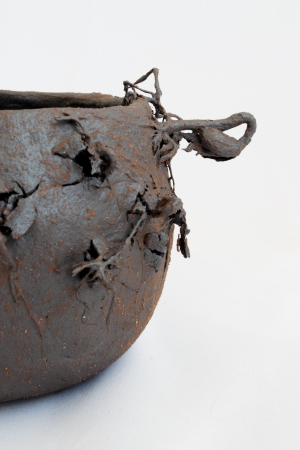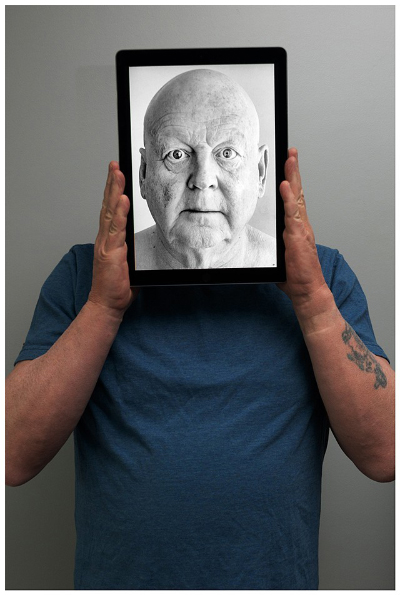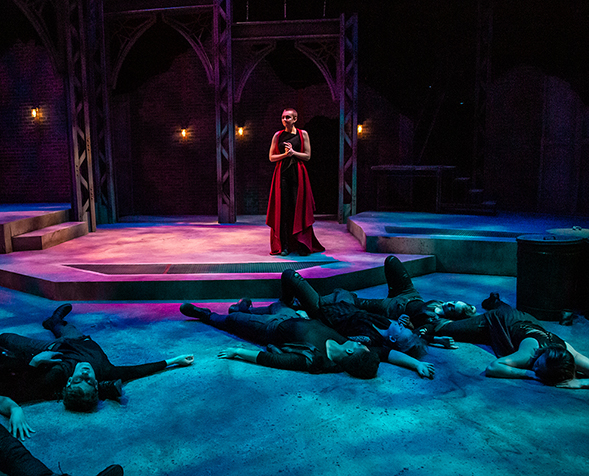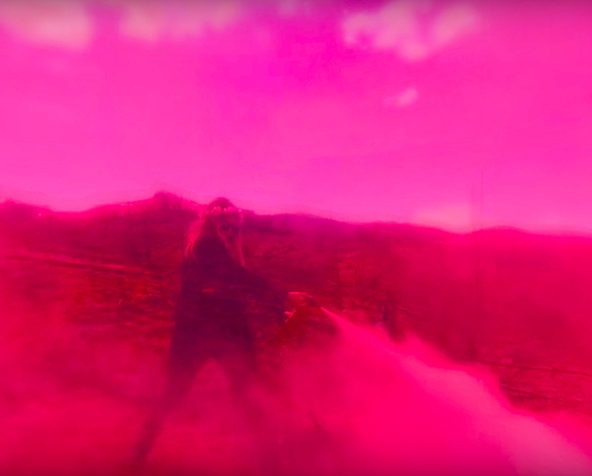DU Faculty and Student Creatives Respond to COVID-19
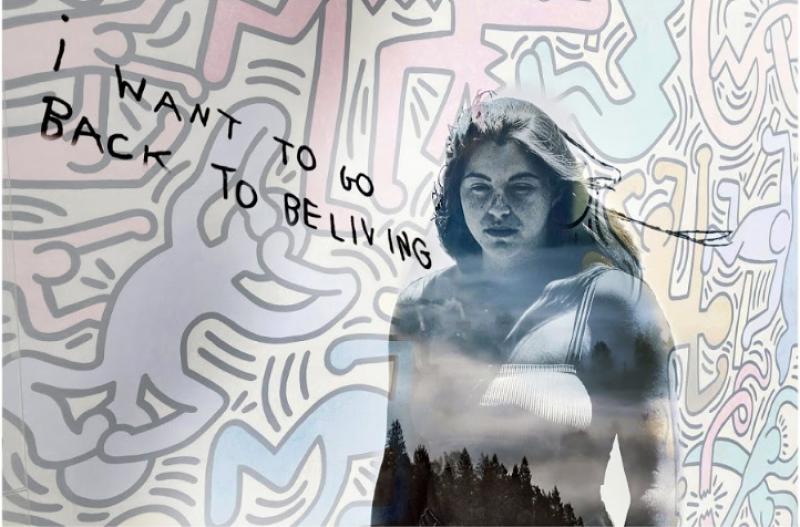
Photo by student Ryker Stokes for the "Coronavirus Diaries" assignment in Roddy MacInnes's photography class
Students and faculty from across the creative arts are rising to the challenges imposed by COVID-19. Despite courses moving online, performance and exhibit spaces closing and art communities dispersing across the nation, University of Denver’s artists are finding innovative avenues for creativity.
Just last week, the exhibition for graduating seniors in the School of Art & Art History’s BFA program was held online.
“I’d been preparing all year for the BFA exhibition in the Vicki Myhren Gallery,” says Melia Ortiz, a BFA student in studio art. “The online exhibition presented the new obstacle of how to represent my work in an online platform.”
Ortiz primarily works with ceramics, a medium that normally requires studio access to equipment.
from Melia Ortiz's capstone exhibition
“I had about an hour warning before I was losing access to the studio. In that time, I loaded my car with over 250 pounds of clay and tools to bring back to my apartment. My apartment has now been taken over by my studio.”
Ortiz views these circumstances as an opportunity to see her art in a new light.
“My work explores the relationship between people and nature. This relationship seems even more important now, as we are all locked indoors.”
Lauren Hartog, assistant to the director at the Vicki Myhren Gallery and DU alumna, is ensuring the gallery’s artists continue to be represented. Hartog is spearheading a series on artist’s works in progress, hosted on the Gallery’s Instagram page. You can follow Hartog’s series at #vmg_quarantine to see works created during quarantine by DU students, faculty, alumni and visiting artists.
Podcasting offers yet another virtual platform for the arts. Anne Penner and Kateri McRae, both professors at DU, co-host the podcast "The Actor’s Mind." In their most recent episode (season 3, episode 1), the professors brought together their expertise in psychology and the arts to discuss creativity in the pandemic.
“Our latest episode is about the pandemic’s impact on teaching theater (now online, of course) and theatre companies. Theatres have been devastated, financially and personally, by the pandemic because making theatre relies on bringing groups of collaborators and audience members together in real time and space,” says Penner.
Penner emphasizes the courage and resilience of students in the Department of Theatre during this time, especially those whose senior performance projects have suddenly taken on new forms. Kevin Douglas and Reanna Magruder, both theatre majors, are re-envisioning their capstones to adapt to a virtual performance.
“I’m fortunate that my capstone is a one-man show, so I don’t have to worry about having actors stuck in separate locations. My actor has nice film equipment, so I’m rehearsing with him remotely over Zoom. I’ve gotten my whole design team on Zoom calls, so we can work collaboratively to translate their original designs for this new filmed version,” Douglas says.
Magruder is exploring animation and holding Zoom rehearsals for her capstone, which is a satire about three women waiting for a Nylon commercial audition.
“While it’s been an adjustment, the rehearsals have been going phenomenally well. In this time, theatre, even over Zoom, has continued to be a connecting and brightening force in my daily life,” Magruder says.
Both Douglas and Magruder emphasize the power of theatre as a vehicle for storytelling, particularly during times of crisis and uncertainty.
“Theatre can still tell important stories, make people feel seen, included, understood, entertained, enlightened, etc. It can allow for emotional and human connection in this time of isolation,” Magruder encourages.
Roddy MacInnes, photographer and associate professor of art at DU, has been exploring the form of the self-portrait as a mode of communicating his day-to-day experience at home.
“I live alone, therefore most of the photographs I’m making are literally self-portraits. I say literally because my definition of what self-portraiture is has become quite broad and does not necessarily include my ‘self’ in the picture.”
As a professor, MacInnes is also turning to virtual platforms as spaces for learning, artistic expression and personal narrative creation.
“My spring quarter photography class, Thinking and Making in the Visual Arts, was originally planned to physically engage students with senior community members and use family photographs as catalysts for sharing life stories (both students and senior community members).”
“Since lockdown, my co-teacher, Anne Walker (PhD candidate in communication studies) and I have adapted the class to operate in the virtual sphere. Students are presently conducting online meetings with their community partners. We have secured outside funding from LinkAges to document the project with video, plus a professionally designed and published magazine.”
Graduate students like Kelly Krumrie and Alicia Wright, both creative writing PhD candidates in English and literary arts and editors for Denver Quarterly, along with Vincent James, Julia Madsen, Elizabeth Adams and Ren Brandon, are also navigating the complexities of what communication means during COVID-19. Krumrie, who studies fiction at DU, is exploring storytelling in her fiction workshop class.
“Students are seeing connections in likely and unlikely places. Many of them are writing sci-fi, fantasy or absurdist/humorous pieces, and that makes sense to me. I gravitate toward other worlds when I’m anxious.”
As editors, Wright and Krumrie are assisting with Denver Quarterly’s upcoming issues. Wright explains what’s next for the literary journal, which isn’t slowing down in the face of COVID-19.
“It’s an exciting time for Denver Quarterly. We’re launching a new online companion, FIVES, in the summer, which will be a home for digitally innovative work and freely available. And we’re planning online readings to celebrate the launch of our print issues, which are currently scheduled for mail delivery as usual. We will post updates and details to @DenverQuarterly, and we hope you’ll join us.”
To view the capstone projects of several CAHSS art students from the School of Art & Art History; Department of Theatre; Media, Film & Journalism Studies; Emergent Digital Practices; and Lamont School of Music, register for the CAHSS Virtual Spring Art Series.

